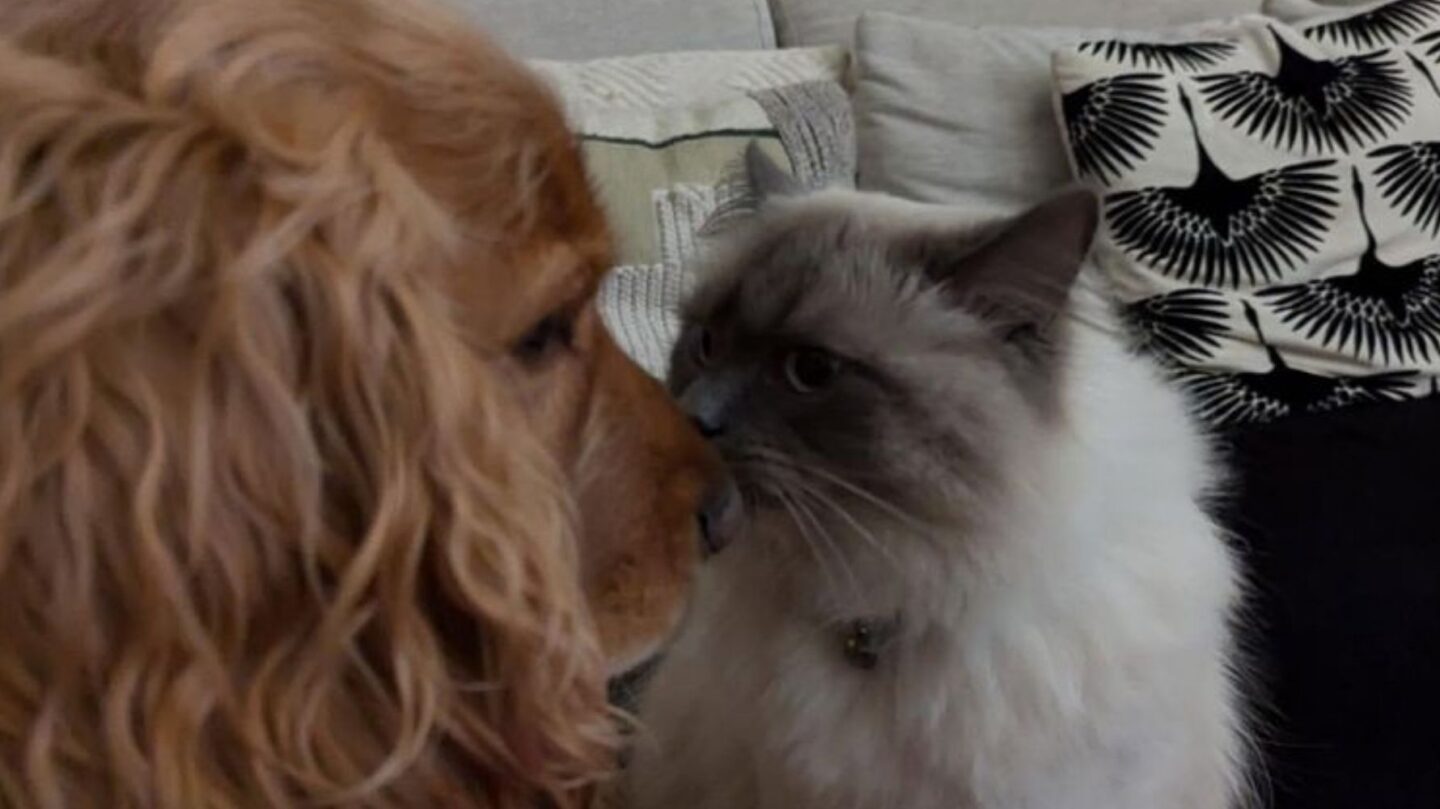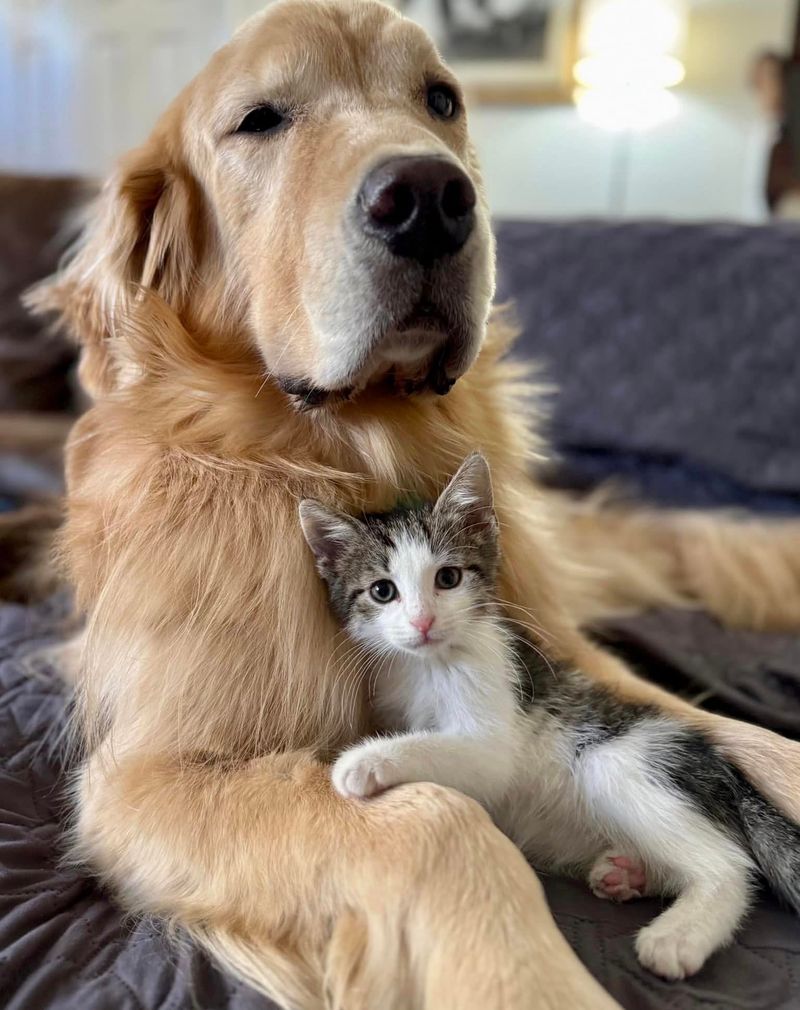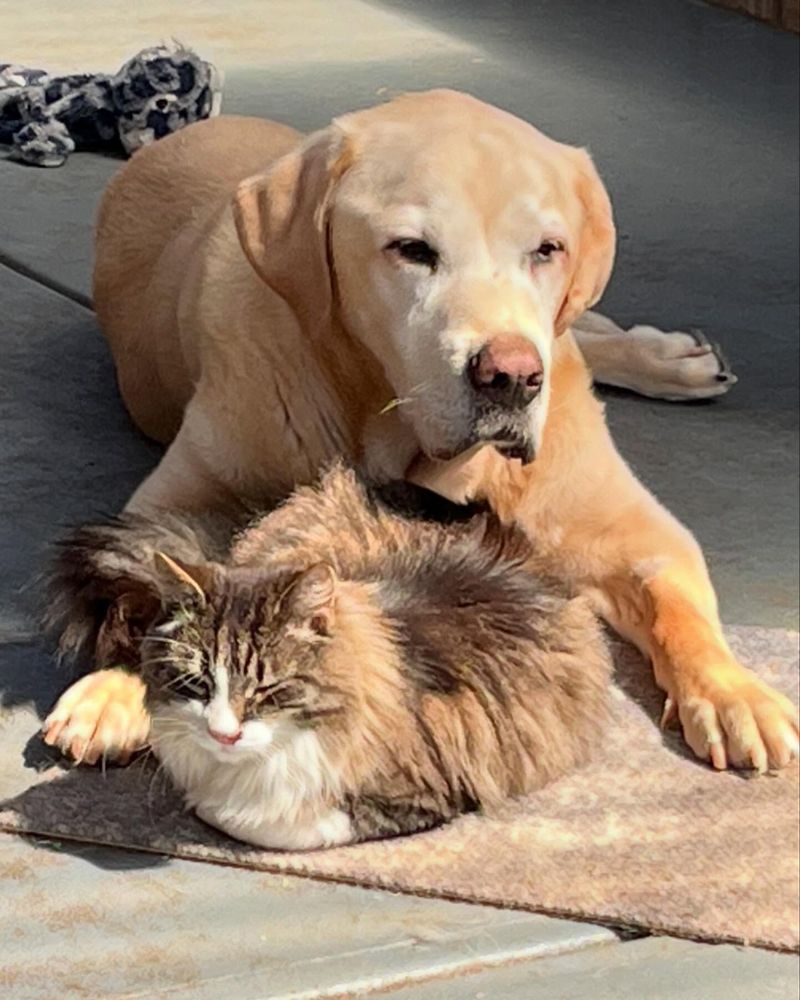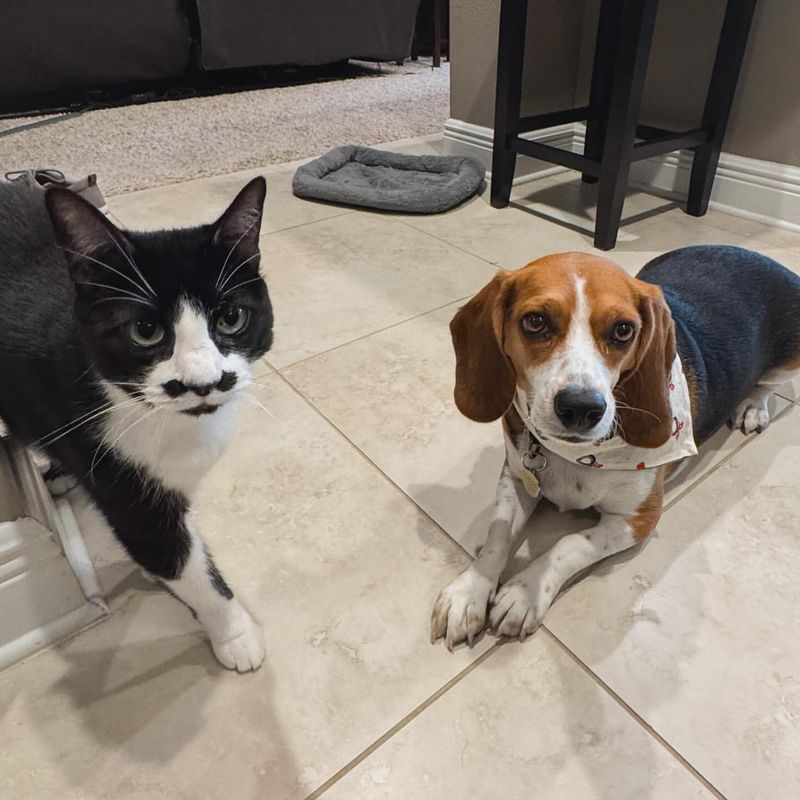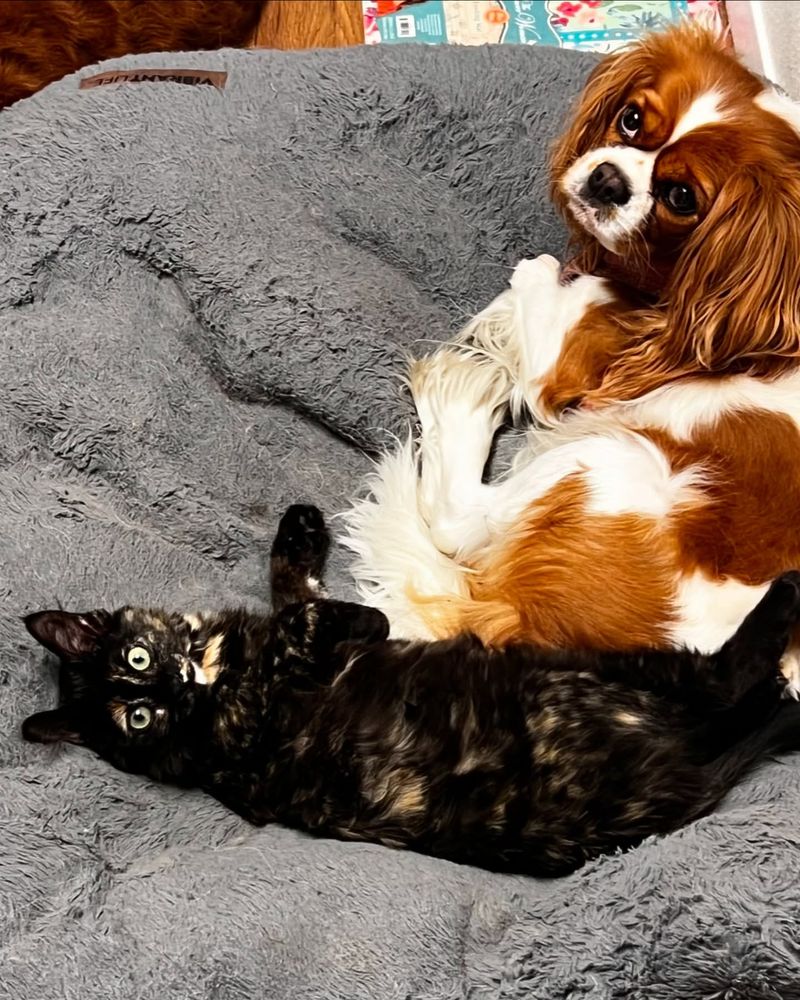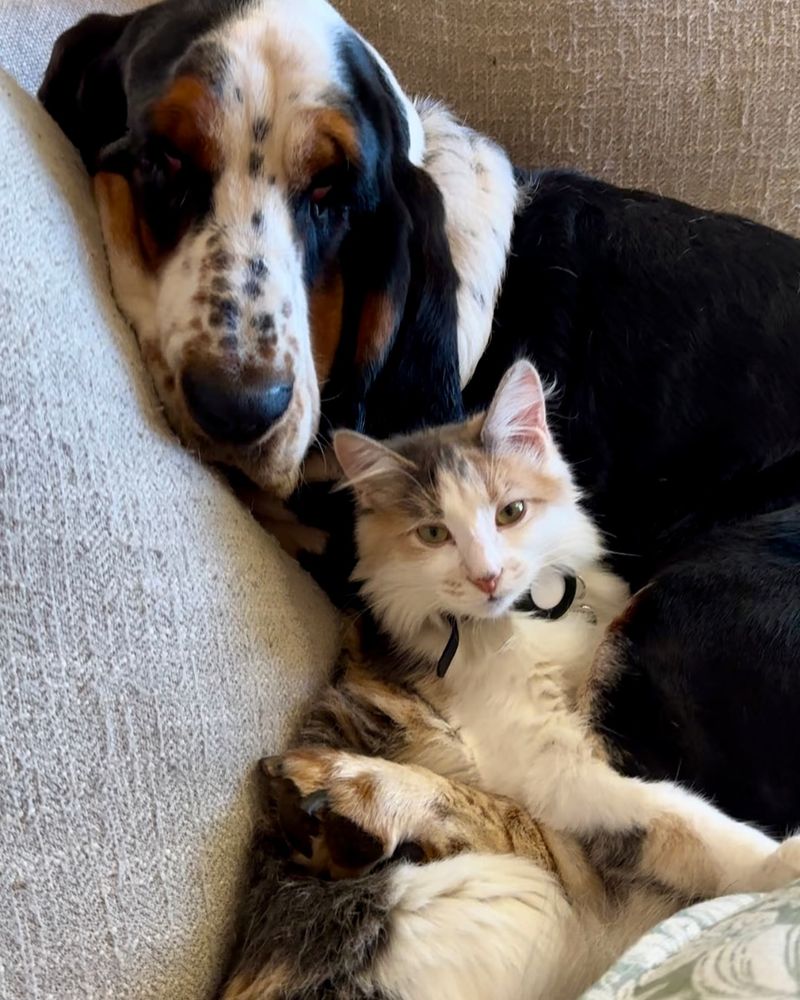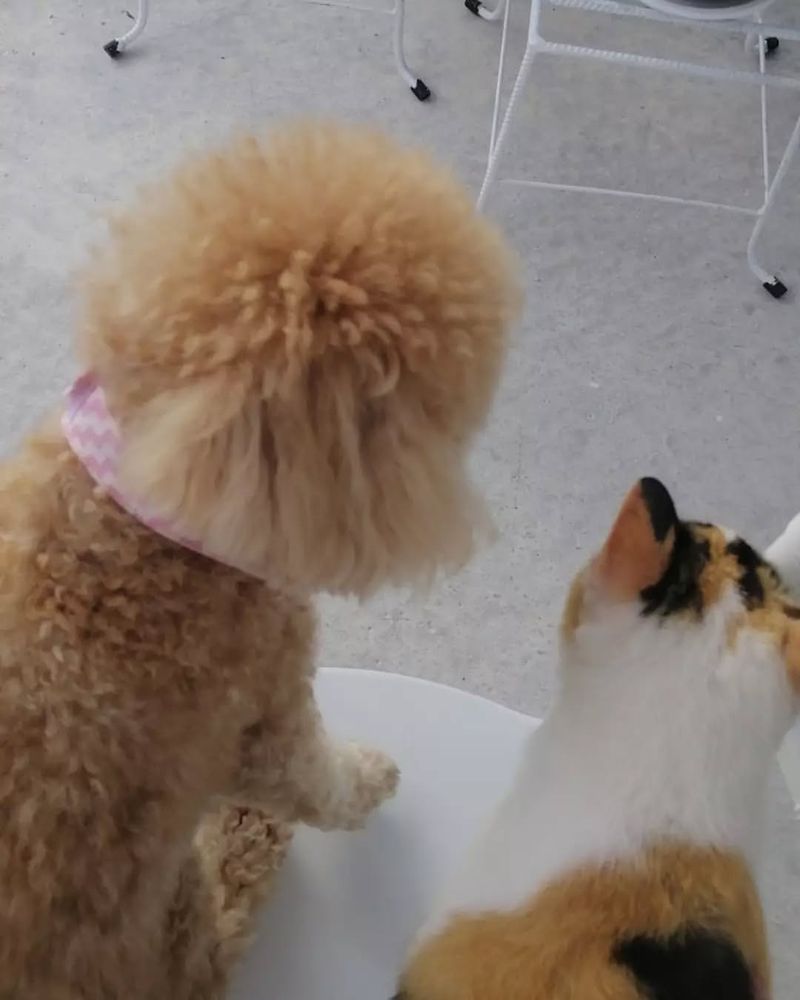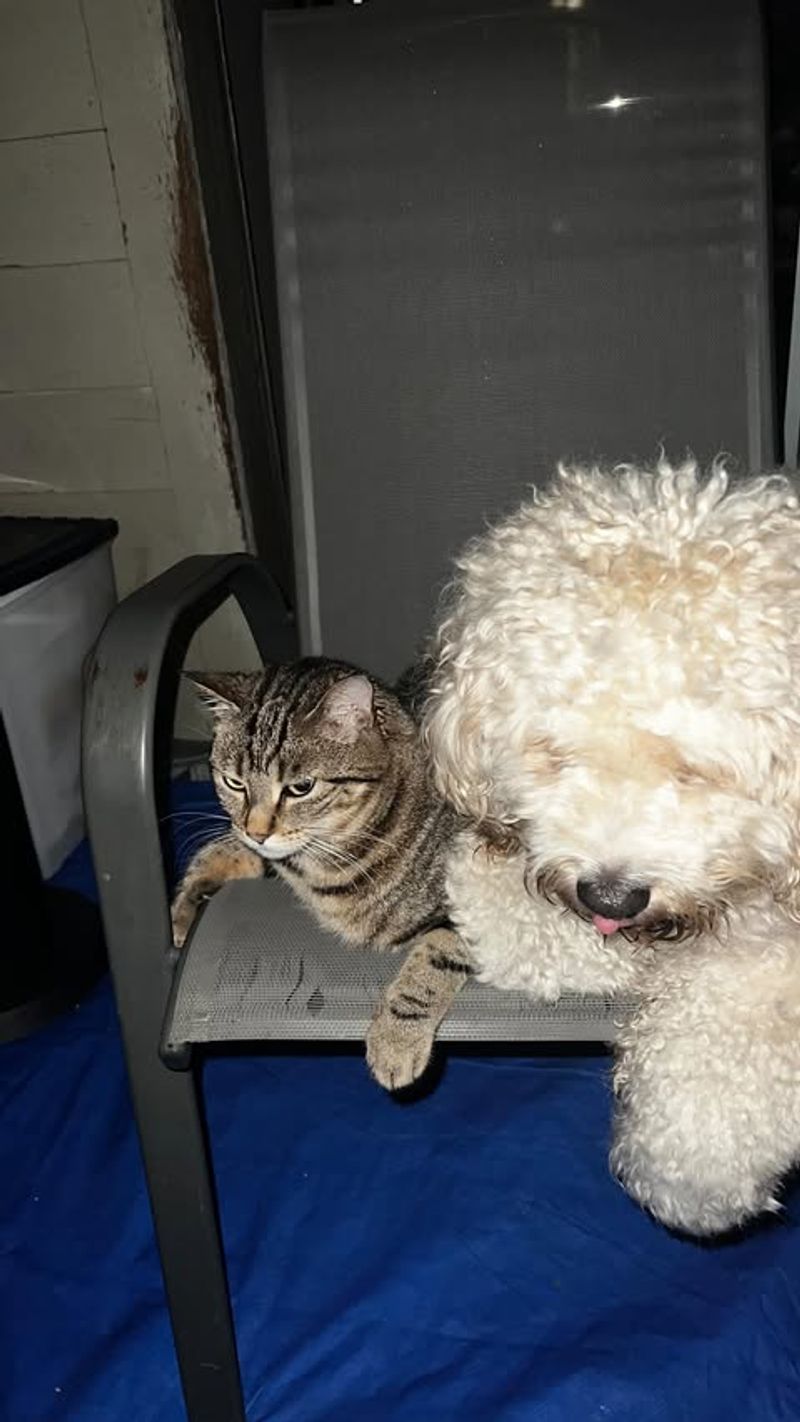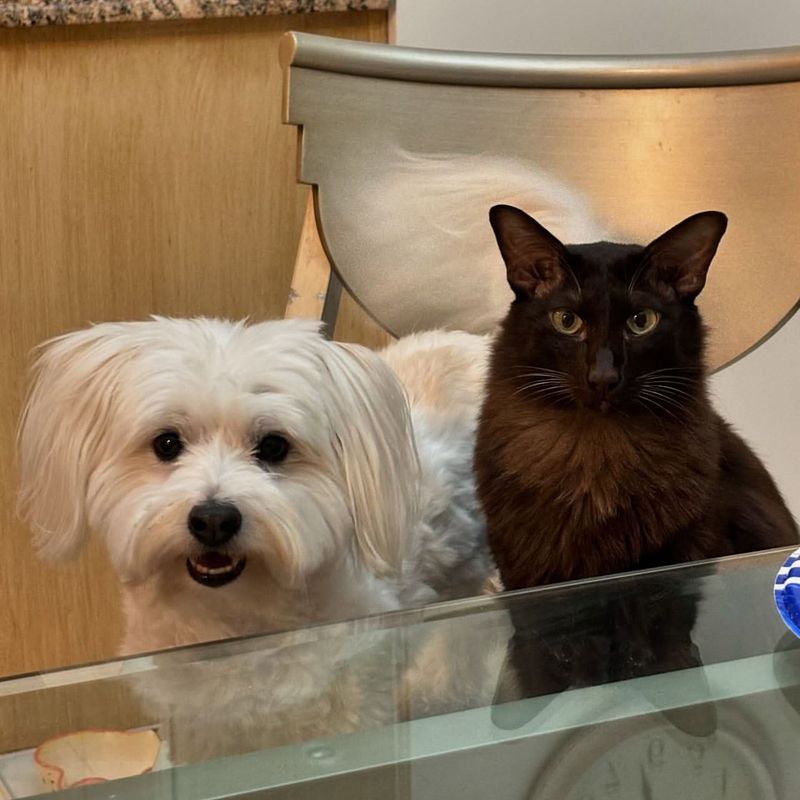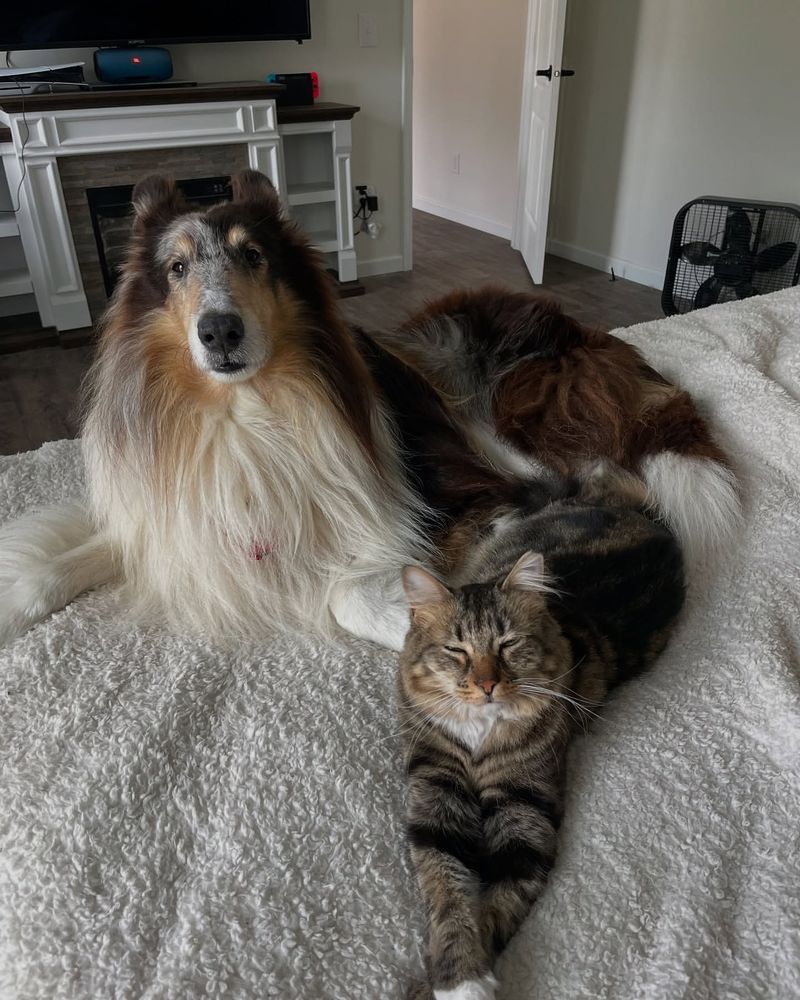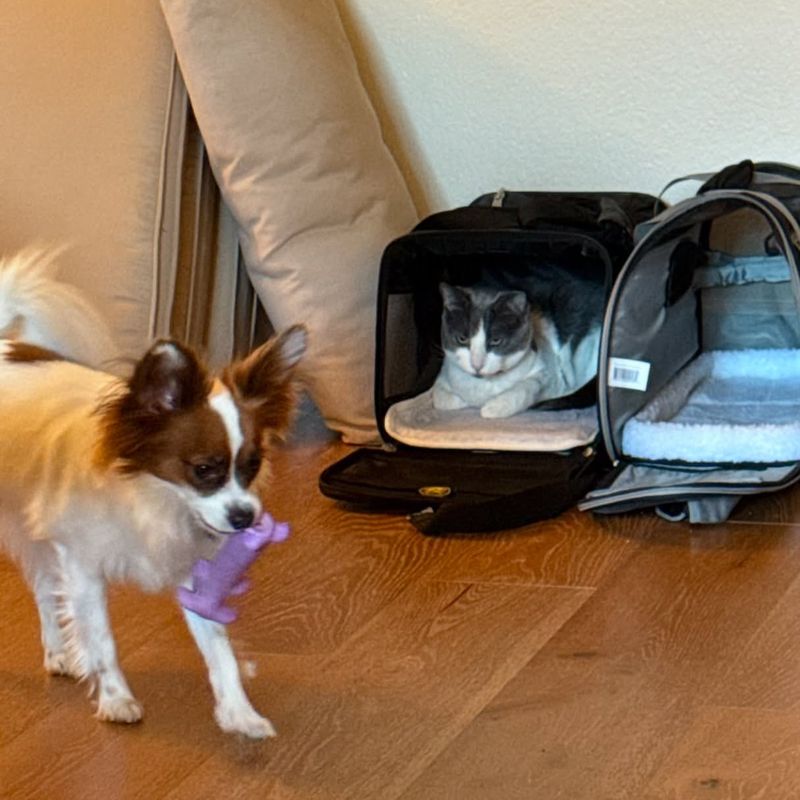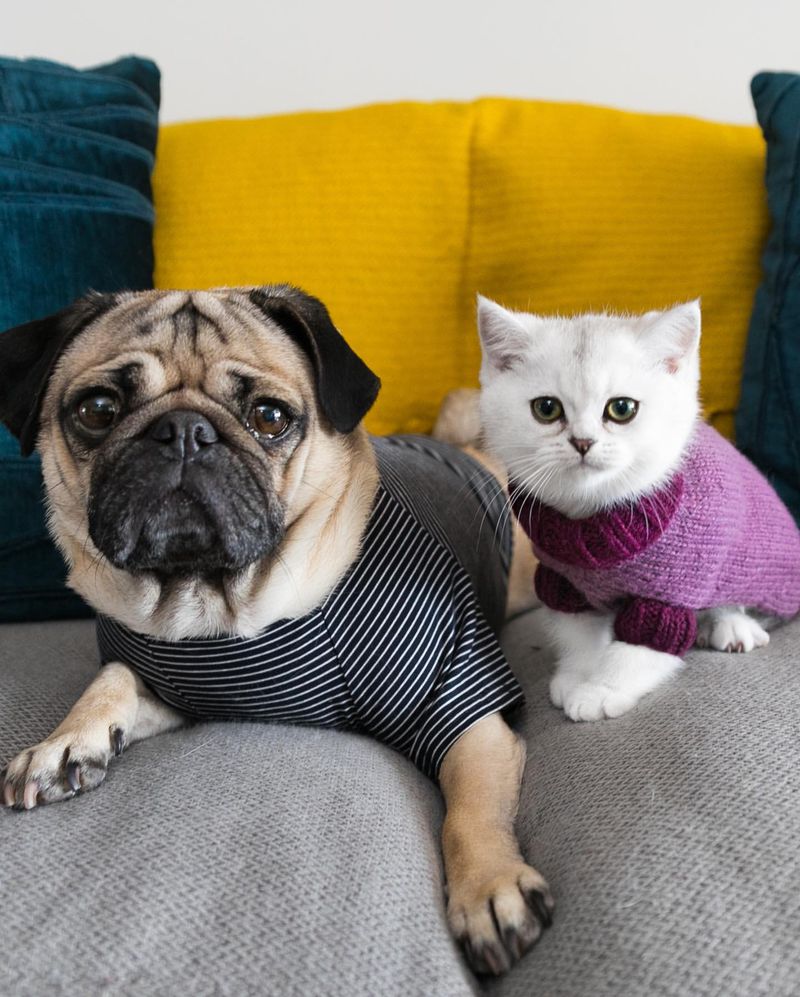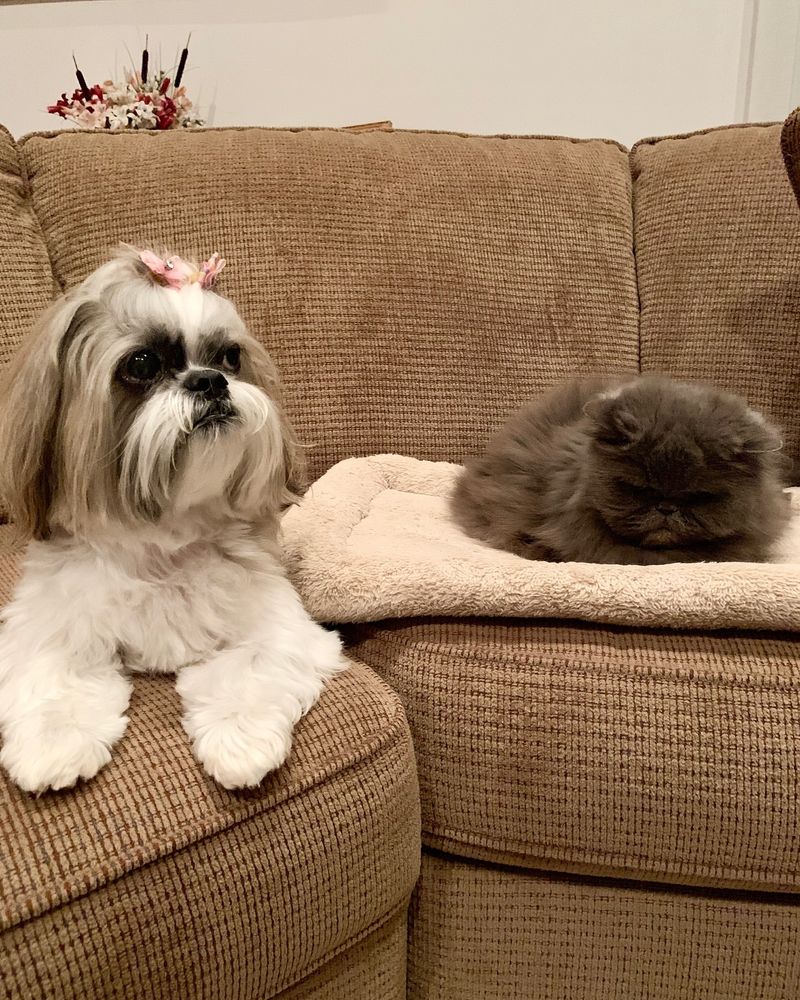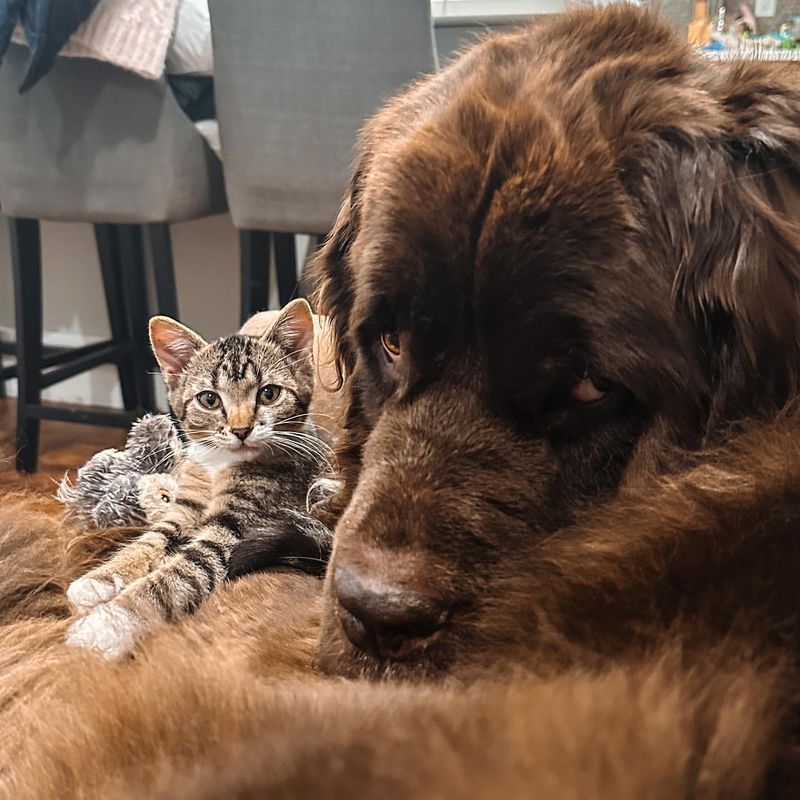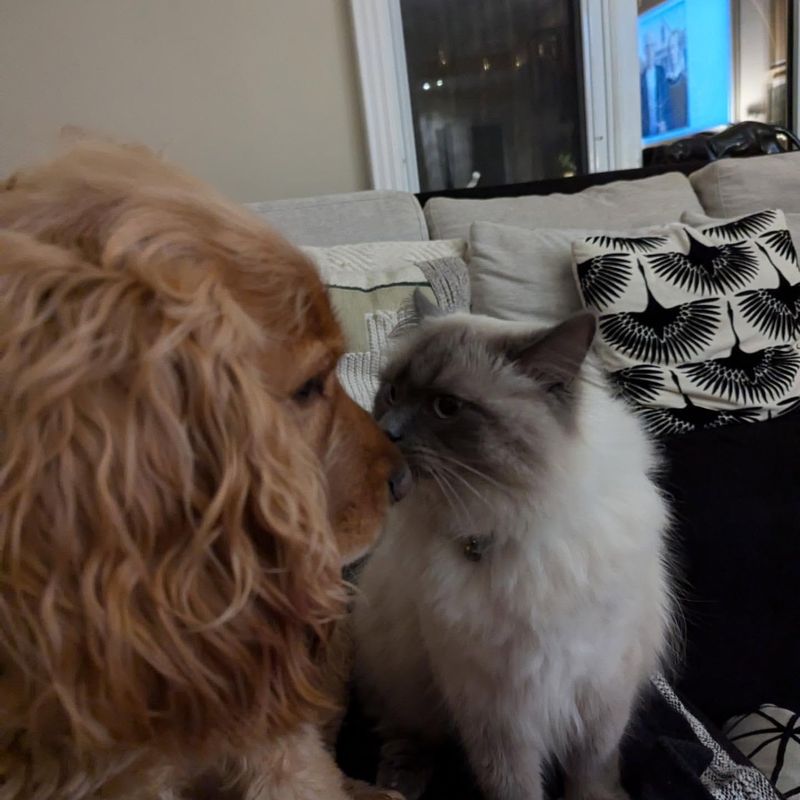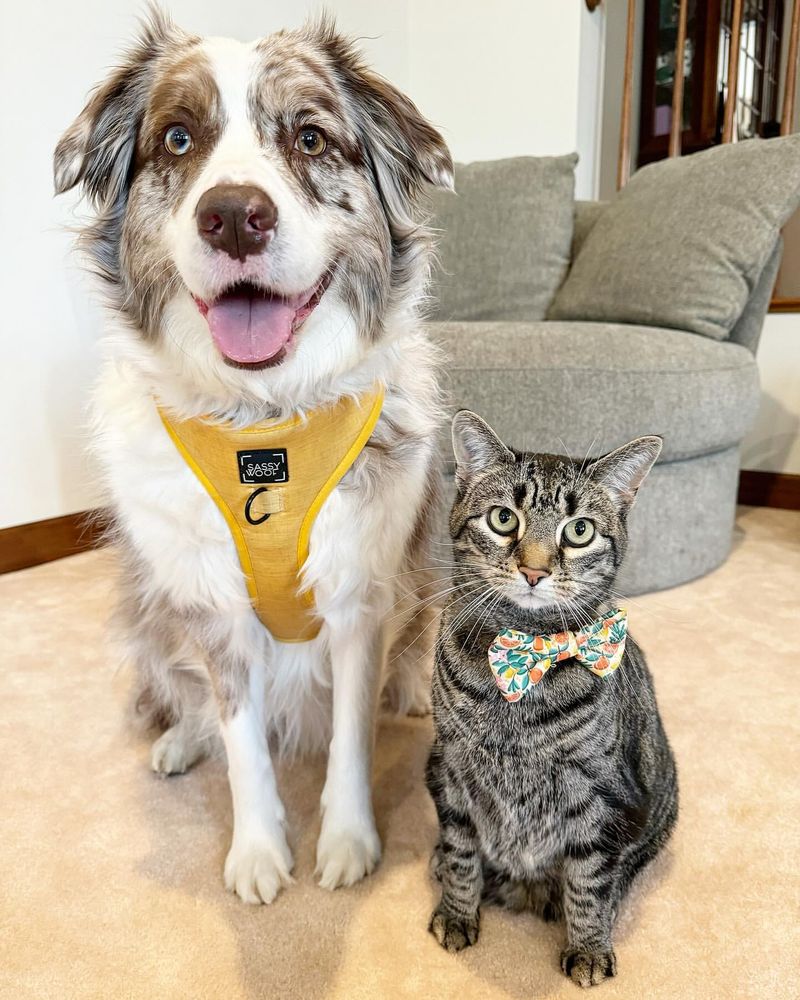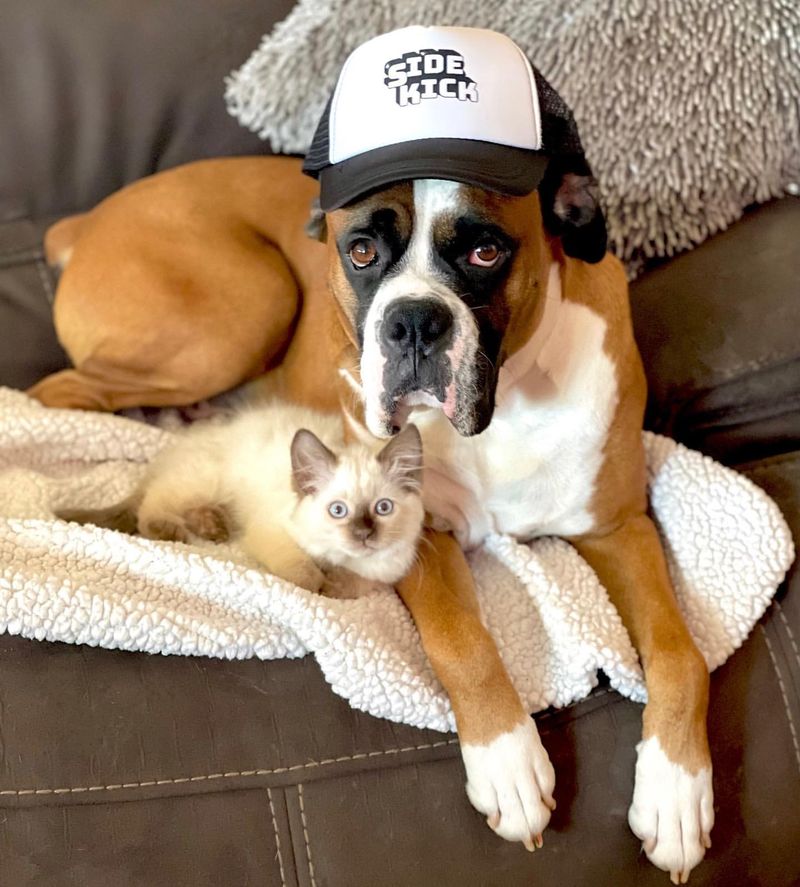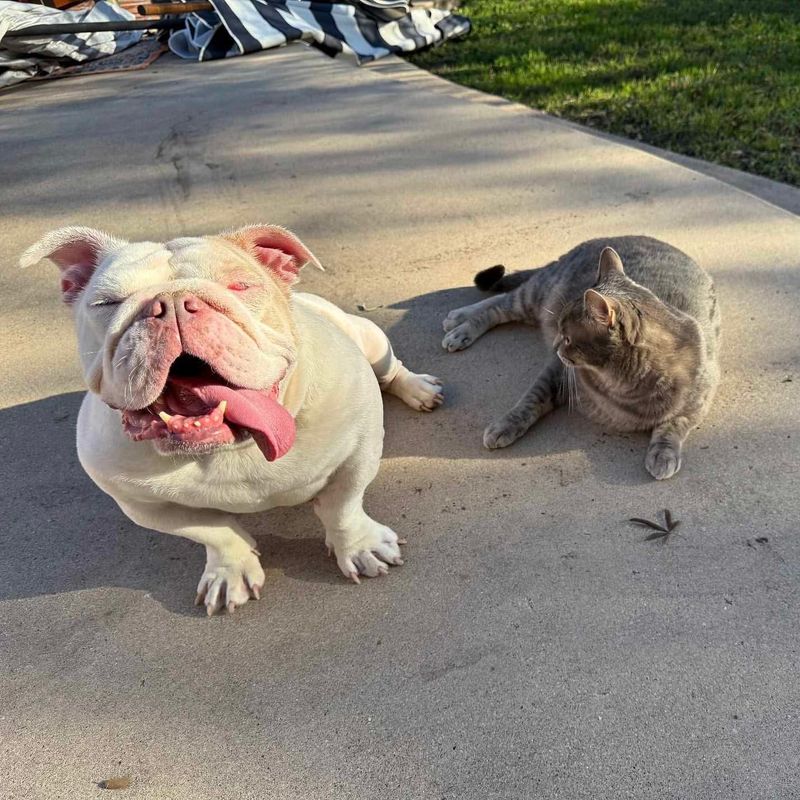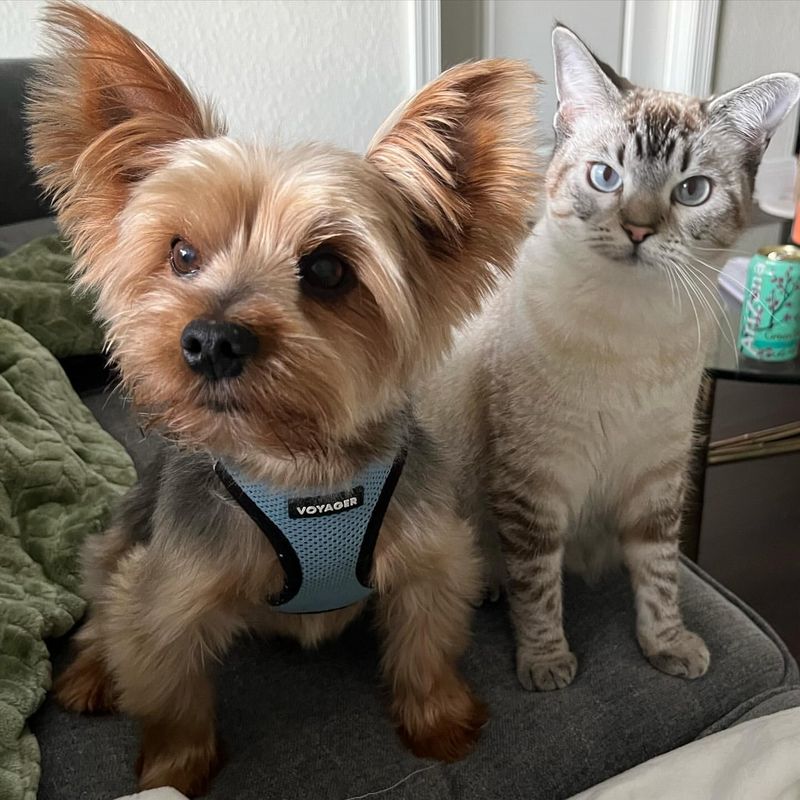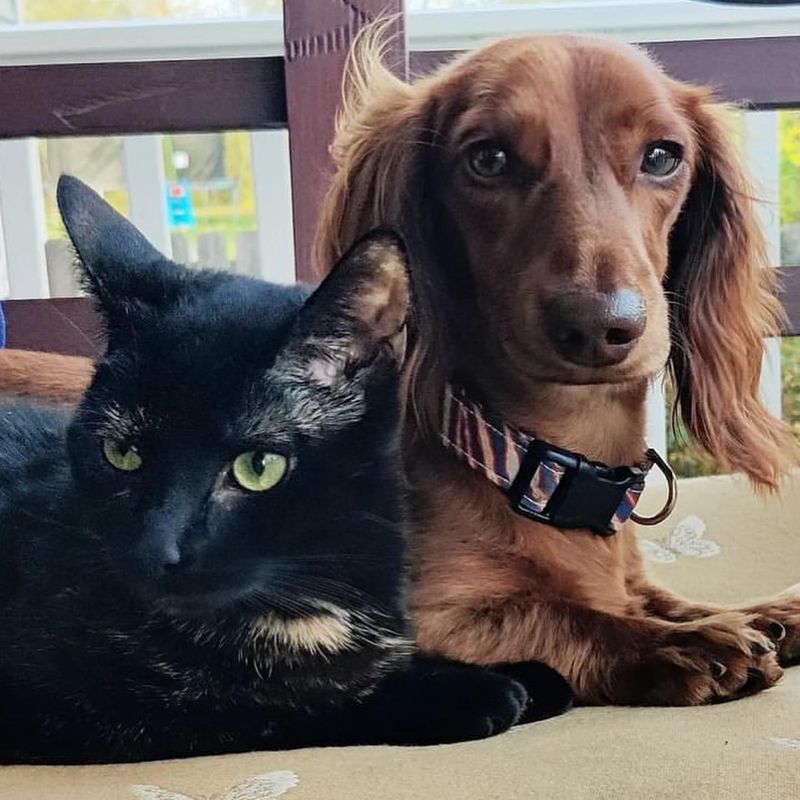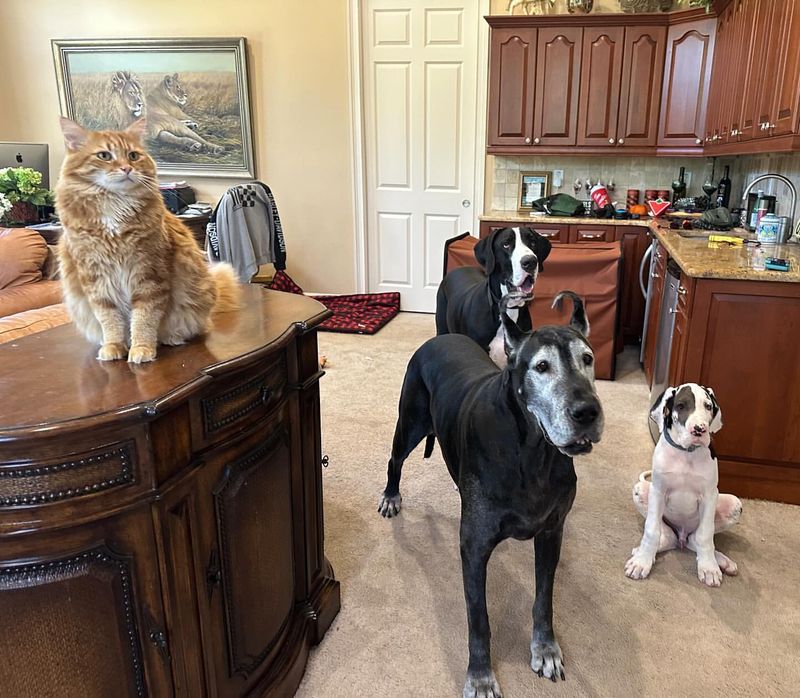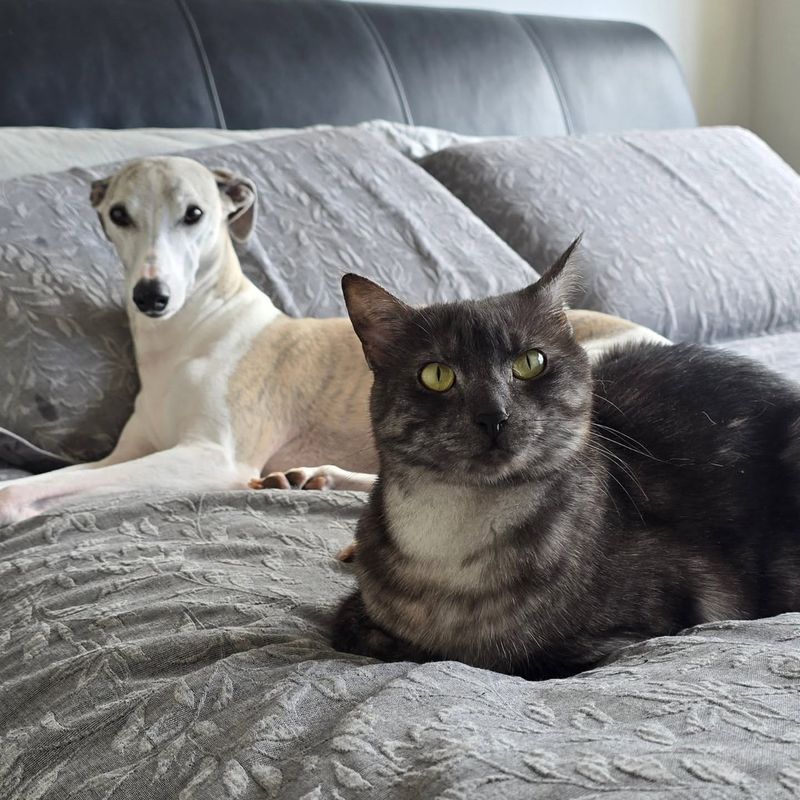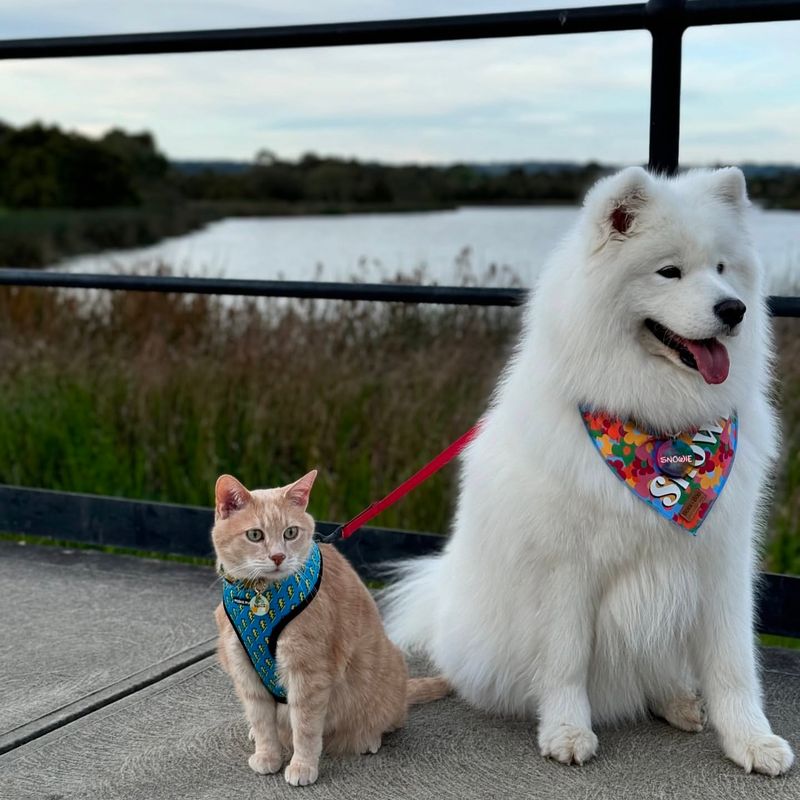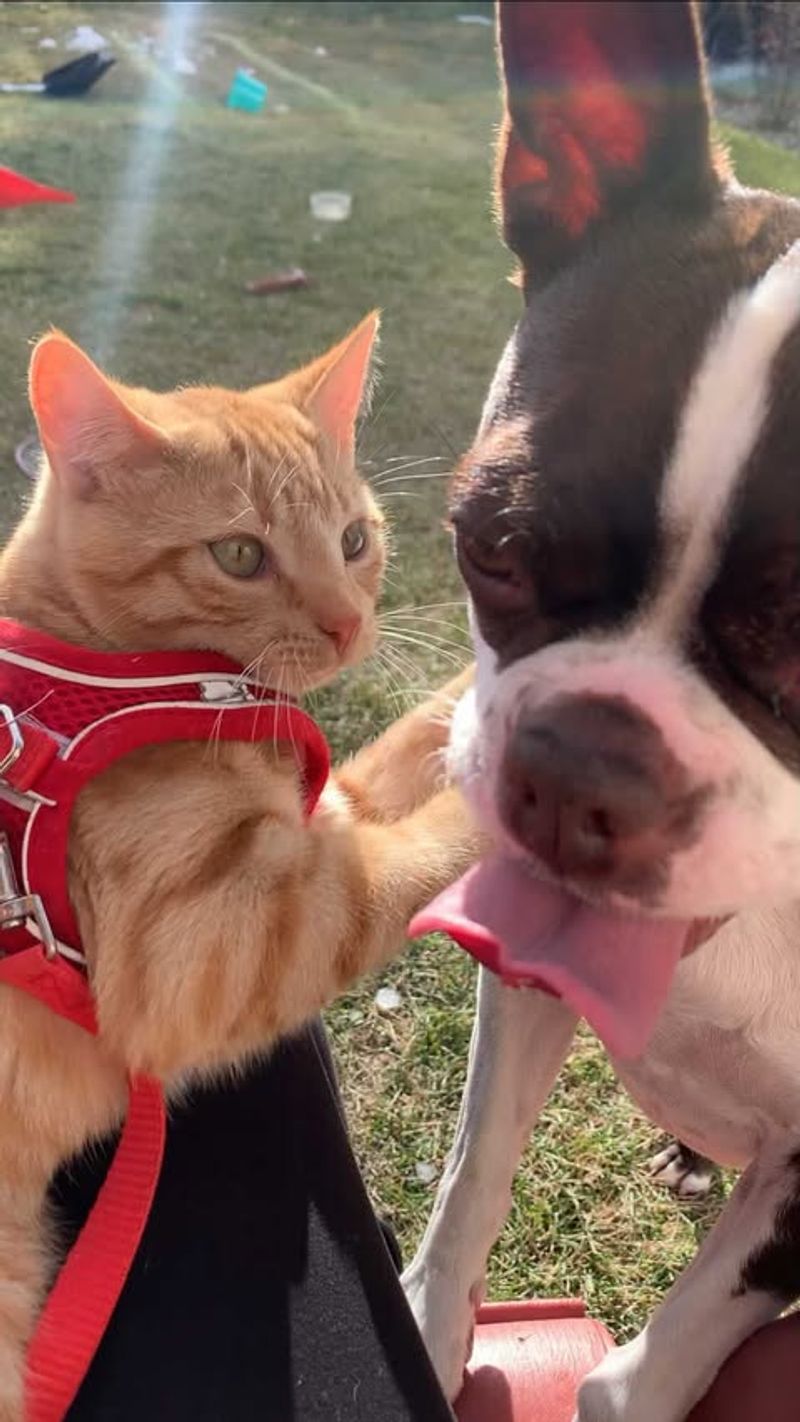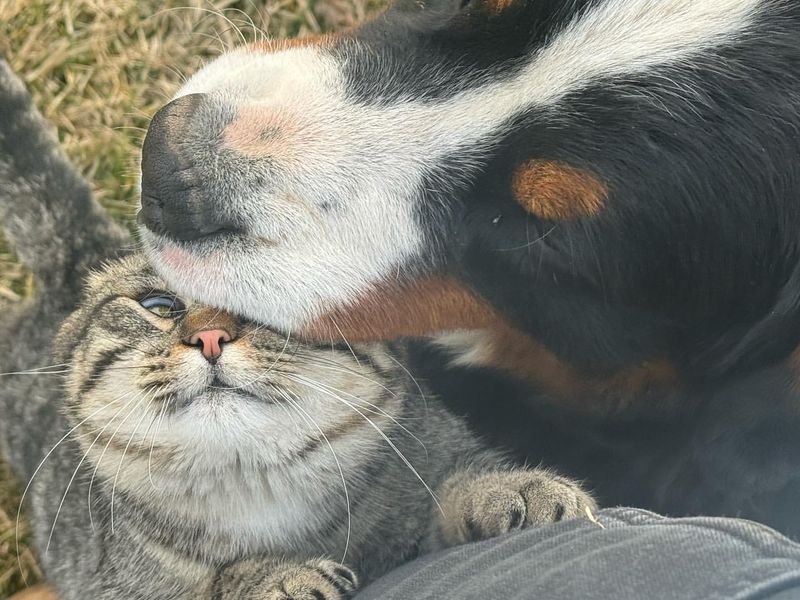Finding dogs that can coexist peacefully with cats is a common concern for pet owners. This guide introduces 26 dog breeds known for their friendly demeanor towards feline friends. Each breed is described in detail, considering their temperament and compatibility with cats, ensuring your home can be a harmonious one. Learn about these unique breeds and discover which might be the perfect companion for your cat.
Golden Retriever
Golden Retrievers are known for their friendly and tolerant nature, making them excellent companions for cats. Their playful yet gentle demeanor allows them to coexist happily with feline friends.
Golden Retrievers are often patient and enjoy having playmates, so a cat in the household can be a good fit. Their social nature means they thrive on companionship, whether it’s with humans or other animals.
When introducing a Golden Retriever to a cat, gradual introductions and supervised interactions help nurture a positive relationship between the two pets.
Labrador Retriever
Labrador Retrievers are well-known for their sociable and gentle disposition, making them ideal companions for cats. Their friendly nature ensures they usually accept cats as part of their pack.
Labs often have a playful energy that can match a cat’s curiosity, providing both pets with engaging interactions. They are generally easygoing, which helps in forming bonds with other animals.
Slow introductions and establishing boundaries can ensure a Labrador and a cat live harmoniously, providing companionship and friendship in a shared home environment.
Beagle
The Beagle’s curious and amiable nature makes it a compatible breed for households with cats. Their size and friendly disposition mean they often see cats as fellow companions rather than adversaries.
Beagles are known for their energetic spirit and enjoy playtime, which can be delightful for a playful cat. Their adaptable nature enables them to adjust well in multi-pet environments.
Initial introductions between a Beagle and a cat should be monitored to gauge interactions, allowing them to establish a respectful relationship over time.
Cavalier King Charles Spaniel
Cavalier King Charles Spaniels have a gentle and affectionate nature, making them great companions for cats. Their calm demeanor is well-suited for peaceful coexistence.
These dogs are not typically aggressive, making them less likely to chase or harass a cat. Their love for companionship means they often enjoy having other animals around.
Careful introductions and creating a safe space for both pets can lead to a harmonious living arrangement, where both the Cavalier and the cat thrive in each other’s company.
Basset Hound
Basset Hounds are renowned for their laid-back and patient personality, traits that are conducive to living alongside cats. Their calm demeanor means they are less likely to startle or provoke feline friends.
These hounds are known for their love of relaxation, often sharing quiet moments with a cat. Their friendly, non-confrontational nature makes them suitable companions.
When introducing a Basset Hound to a cat, providing separate spaces initially can help each pet adjust, eventually leading to a peaceful coexistence in a shared environment.
Poodle
Poodles, known for their intelligence and adaptability, often get along well with cats. Their friendly and social nature makes them suitable companions in a multi-pet household.
Poodles can be trained to respect the boundaries of a cat, reducing the likelihood of conflicts. Their playful yet non-aggressive demeanor helps them interact positively with feline friends.
Establishing ground rules and ensuring each pet has their own space will nurture a positive relationship between a Poodle and a cat, leading to a harmonious home environment.
Bichon Frise
The Bichon Frise is known for its cheerful and gentle disposition, which makes it a suitable companion for cats. Their small size and friendly nature often allow smooth interactions with felines.
Bichons are social animals, enjoying the company of both humans and other pets, including cats. Their playful attitude can match a cat’s energy, fostering engaging playtime.
When introducing a Bichon Frise to a cat, a gradual introduction with positive reinforcement can help establish a loving relationship between the two, enriching their shared living space.
Maltese
Maltese dogs are known for their gentle and affectionate nature, making them excellent companions for cats. Their small size makes them less intimidating, promoting peaceful interactions.
These dogs thrive on companionship and are often eager to bond with other pets, including cats. Their calm demeanor means they are less likely to engage in aggressive behavior.
Introducing a Maltese to a cat should be done gradually, with plenty of positive reinforcement to encourage friendly interactions. This helps in creating a harmonious environment for both pets.
Collie
Collies are renowned for their gentle and friendly nature, making them great companions for cats. Their herding instincts, though strong, can be managed to avoid overwhelming feline friends.
These dogs are intelligent and can be trained to respect a cat’s space, reducing potential conflicts. Their sociable nature means they often enjoy the company of other animals.
When introducing a Collie to a cat, ensuring that the introduction is slow and controlled can help build a respectful and friendly relationship, allowing both pets to coexist peacefully.
Papillon
Papillons, with their lively and friendly disposition, often make good companions for cats. Their small size and playful nature allow them to interact smoothly with feline friends.
These dogs are known for their intelligence and adaptability, enabling them to adjust well in multi-pet households. Their social disposition means they usually enjoy the company of cats.
A gradual introduction and monitored interactions are key when bringing a Papillon into a home with a cat, ensuring both animals develop a comfortable and friendly bond.
Pug
Pugs are known for their affectionate and gentle nature, making them ideal companions for cats. Their laid-back personality means they are less likely to provoke conflict with feline friends.
These dogs are social and enjoy the company of other animals, adapting well to living with cats. Their calm demeanor helps create a peaceful home environment.
When introducing a Pug to a cat, a slow and supervised introduction ensures that both pets feel comfortable and secure, paving the way for a harmonious coexistence in the household.
Shih Tzu
Shih Tzus, with their calm and affectionate temperament, are well-suited to living with cats. Their friendly nature and small size make them non-threatening companions to felines.
These dogs often enjoy the company of other pets, finding comfort in shared spaces. Their gentle demeanor helps foster a peaceful relationship with cats.
Introducing a Shih Tzu to a cat should be gradual, with positive reinforcement to encourage friendly interactions. This helps build a supportive environment where both pets can thrive together.
Newfoundland
Newfoundlands are known for their gentle giant personality, making them suitable companions for cats. Despite their large size, they are often patient and loving towards smaller animals.
These dogs have a calm and friendly demeanor, which helps in creating a peaceful coexistence with cats. They are generally non-aggressive, reducing potential conflicts.
When introducing a Newfoundland to a cat, ensuring that both pets have their own space initially can help them adjust to each other’s presence, leading to a harmonious living environment.
Cocker Spaniel
Cocker Spaniels are known for their friendly and affectionate nature, making them good companions for cats. Their playful spirit often matches well with a cat’s curiosity.
These dogs enjoy social interactions and can form strong bonds with other pets, including cats. Their gentle demeanor ensures a peaceful coexistence in a multi-pet household.
Introducing a Cocker Spaniel to a cat should be done gradually, with positive reinforcement to encourage friendly interactions. This helps in building a supportive and harmonious environment for both pets.
Australian Shepherd
Australian Shepherds, known for their intelligence and adaptability, can coexist well with cats. Their herding instincts, although strong, can be managed with training to ensure peaceful interactions.
These dogs are highly social and enjoy the company of other animals, including cats. Their energy and curiosity can match a cat’s playful nature, fostering engaging interactions.
A gradual introduction and supervised interactions help in establishing a respectful and friendly relationship between an Australian Shepherd and a cat, allowing them to thrive together in a shared environment.
Boxer
Boxers are known for their playful and friendly nature, making them suitable companions for cats. Their energetic demeanor can match well with a cat’s curiosity and playfulness.
These dogs are social animals, enjoying the company of other pets, including cats. Their gentle yet enthusiastic nature helps in forming bonds with feline friends.
Introducing a Boxer to a cat should be done gradually, with plenty of positive reinforcement to encourage friendly interactions. This helps in creating a harmonious environment for both pets to enjoy.
Bulldog
Bulldogs are known for their gentle and laid-back nature, making them ideal companions for cats. Their calm demeanor means they are less likely to engage in aggressive behavior.
These dogs enjoy the company of other animals and can form strong bonds with cats. Their non-confrontational attitude helps create a peaceful home environment.
When introducing a Bulldog to a cat, a slow and supervised introduction ensures that both pets feel comfortable and secure, paving the way for a harmonious coexistence in the household.
Yorkshire Terrier
Yorkshire Terriers, with their lively and inquisitive nature, often get along well with cats. Their small size makes them less intimidating, promoting friendly interactions with felines.
These dogs are known for their intelligence and adaptability, enabling them to adjust well in multi-pet households. Their energetic and playful demeanor can match a cat’s curiosity.
A gradual introduction and monitored interactions are key when bringing a Yorkshire Terrier into a home with a cat, ensuring both animals develop a comfortable and friendly bond.
Dachshund
Dachshunds, with their curious and friendly nature, can coexist well with cats. Their small size and playful energy allow them to interact smoothly with feline companions.
These dogs are known for their adaptability, making them suitable for households with multiple pets. Their inquisitive spirit means they often enjoy interacting with cats.
When introducing a Dachshund to a cat, ensuring a gradual and supervised introduction helps in establishing a respectful and friendly relationship, allowing both pets to thrive together.
Great Dane
Great Danes, despite their large size, are known for their gentle and affectionate nature, making them suitable companions for cats. Their calm demeanor helps in creating a peaceful coexistence.
These dogs enjoy the company of other animals and can form strong bonds with feline friends. Their non-aggressive attitude reduces the likelihood of conflicts.
When introducing a Great Dane to a cat, providing separate spaces initially can help each pet adjust, eventually leading to a harmonious living environment where both can thrive together.
Whippet
Whippets are known for their gentle and calm nature, making them good companions for cats. Their sleek and non-threatening appearance allows them to interact smoothly with felines.
These dogs are often affectionate and enjoy the company of other pets, including cats. Their calm demeanor helps in fostering a peaceful relationship in a multi-pet household.
Introducing a Whippet to a cat should be done gradually, with positive reinforcement to encourage friendly interactions. This helps create a supportive environment where both pets can enjoy each other’s company.
Havanese
Havanese dogs are known for their cheerful and friendly nature, making them suitable companions for cats. Their small size and playful energy make them less intimidating to felines.
These dogs thrive on social interactions and enjoy the company of other animals, including cats. Their adaptable nature helps them adjust well in multi-pet households.
A gradual introduction and monitored interactions are essential when bringing a Havanese into a home with a cat, ensuring both animals develop a comfortable and friendly relationship.
Samoyed
Samoyeds are known for their friendly and sociable nature, making them good companions for cats. Their fluffy appearance and gentle demeanor often charm feline friends.
These dogs are social animals, enjoying the company of other pets, including cats. Their playful yet non-aggressive nature helps in forming bonds with felines.
When introducing a Samoyed to a cat, a slow and supervised introduction ensures that both pets feel comfortable and secure, paving the way for a harmonious coexistence in the household.
Soft Coated Wheaten Terrier
Soft Coated Wheaten Terriers, with their playful and friendly demeanor, can get along well with cats. Their energetic nature can match a cat’s curiosity and playfulness.
These dogs are known for their adaptability and social disposition, enabling them to adjust well in multi-pet households. They enjoy the company of other animals, including cats.
A gradual introduction and monitored interactions are key when bringing a Soft Coated Wheaten Terrier into a home with a cat, ensuring both animals develop a comfortable and friendly bond.
Boston Terrier
Boston Terriers, known for their friendly and adaptable nature, are often compatible with cats. Their small size and playful demeanor allow them to interact smoothly with feline companions.
These dogs are social animals and thrive on interactions with other pets, including cats. Their gentle disposition helps in fostering a peaceful environment.
When introducing a Boston Terrier to a cat, a gradual introduction with positive reinforcement can help establish a loving relationship between the two, enriching their shared living space.
Bernese Mountain Dog
Bernese Mountain Dogs, despite their large size, are known for their calm and gentle nature, making them suitable companions for cats. Their friendly demeanor helps in creating a peaceful coexistence.
These dogs are social animals, enjoying the company of other pets, including cats. Their non-aggressive attitude reduces the likelihood of conflicts.
Introducing a Bernese Mountain Dog to a cat should be done gradually, ensuring both pets have their own space initially. This helps in developing a harmonious environment where both can thrive together.
